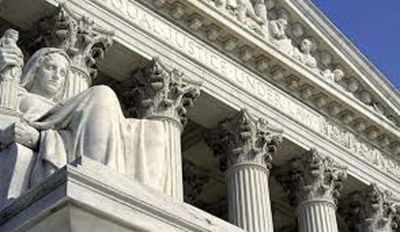
Free Speech Includes Big Political Money, Say Supremes
The US Supreme Court decided today that free speech includes the freedom to contribute larger amounts of money than allowed by existing campaign finance laws. The aggregate amount permitted under past law reached $123,200 per two years, the length of the federal political cycle. With today’s change to that law, the aggregate amount has climbed to $5,900,000. http://www.reuters.com/article/2014/04/02/us-usa-court-election-idUSBREA3116V20140402
How does the “aggregate amount” calculation work, exactly? Current campaign finance laws limit the amount an individual may pay for an single candidate (or that candidate’s election committee) to $2,600 in the current two-year election cycle, 2013 – 2014. In the same period, an individual may contribute no more than $32,400 to a national political party. Under today’s ruling by the Supremes, a “joint fundraising committee” controlled by an elected incumbent or a party official, may accept the aggregate amount of $5.9 M for the current cycle, with that amount inching upwards in future cycles. Such a joint fundraising committee, through either the incumbent or official, may distribute that cash to an array of candidates or their committees locally and statewide. http://www.law.cornell.edu/uscode/text/26/527 and http://www.elections.il.gov/campaigndisclosure/faq.aspx and http://www.fec.gov/ans/answers_general.shtml
The change in fundraising laws means that the 2012 big contributors, of whom there were 541, will likely put much more money into politics in exchange for much more influence over politicians, say HFS analysts. Of course, most people have less than a hundred dollars to contribute to political causes, if they play political fundraising games at all. Donated time tends to be the currency of choice for the majority of individuals with political passion. So the law impacts only the very rich, who already have lifestyles and connections most Americans do not understand in the least. And those very wealthy people understand the rest of us even less well. How this cultural divide might unfold in politics remains uncertain because many wealthy contributors cancel out one another in the larger picture, leaving the key influences, good ideas for our times, still in the driver’s seat of American politics. That’s what HFS analysts say, but what do you think?
